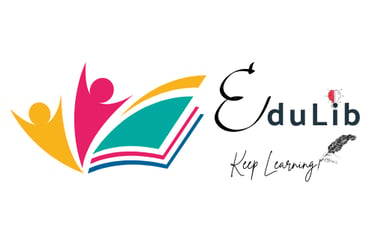
The Responsibilities of the Assessor
Uncover the critical responsibilities of an assessor in this blog. Explore the key roles that ensure fair, accurate, and reliable assessments for learners' success.
Understand and apply standards/Standardise
Standardisation is important in the assessment process. It is important that all assessors in a department are consistent and fair when assessing learners’ works. The standards laid down in the standardisation document must be followed to ensure assessment decisions are fair and ethical for all students. A department needs to standardise the assessment procedure to ensure the uniformity of the process among all staff members. Also, this gives a consistent experience to all students throughout their academic studies. For example, to standardise the assignment brief, a meeting was set up by the line manager where we examined an assessment template/sample provided by the awarding body, Pearson. We were then able to adopt many parts of the format/template, the completion period, and the authenticity requirement of the assessment. The template of the assessment plan from the awarding body was also examined and adopted as the standard assessment plan of the civil engineering/construction department.
Plan
It is important to plan your work activities to ascertain teaching and assessment timelines. For example, I use a work plan to organise and monitor the assessment process of the NVQ units. For example, I use a tracking sheet to monitor assessments that I have issued (yellow coded), assessments that students have not achieved (red coded), and assessments that they have achieved (green coded).
Communicate
It is important that an assessor communicate effectively during the assessment process. The method of communication depends on the individual student or group of students. For example, when communicating with my students on the NVQ and Pearson pathways, I use e-mails to confirm one-to-one sessions and send support documents, MS Teams to host one-to-one meetings, MS Teams to make announcements and upload learning resources, face-to-face teaching and practical sessions on campus, OneFile management system to give feedback to NVQ learners, and so on.
Assess
It is imperative that an assessor evaluate/assess students' knowledge and competence in a variety of activities and ensure that the competence and knowledge demonstrated meet the required standards and learning criteria, aims, and objectives. For instance, in the internally set assessments for the Pearson qualification, I ensure that the assessments meet the criteria under the learning outcomes.
Map evidence to standards
An assessor needs to ensure that the pieces of evidence provided by the students are matched against the required standard to ensure the integrity of the assessment process. For example, for the NVQ units I assess, I ensure the evidence provided by the student matches the criteria required. For a criterion that requires the student to produce a safe system of work, the student must upload one of the following pieces of evidence: a risk assessment, method statement, construction phase plan, health and safety file, etc. They must discuss their role in the production of the system of work they have uploaded.
Make assessment decisions
An assessor is required to make objective decisions about the grades of learners. These decisions must be made in line with the requirements of the qualifications, i.e., the criteria and contents of the specifications. For example, to achieve a pass grade in the Pearson construction qualification, the student must answer all the pass criteria of the unit as laid out in the unit specification. To achieve the merit grade in the internally set assessment, the student must answer all the pass and merit criteria as laid out in the unit specification. To achieve the distinction grade in the internally set assessment, the student must answer all the pass, merit, and distinction criteria as laid out in the unit specification.
Ensure there are records of the process
An assessor must ensure there are records of the assessment process. These are needed as evidence of good practice. They may be required during the assessment appeal process by the internal verifier, external verifier, and management of the institution. For instance, the FE and HE assessment plan of the department is on a centralised system on MS Teams. Also, my assessment and feedback for the Pearson and NVQ qualifications are set and given on the MS Teams and OneFile management system.
Give feedback
This is an opportunity for the assessor to give comments about the assessment that has been carried out by the students. It can be given before the final submission/deadline of the assessment to allow students to improve their work. Also, it can be provided after the assessment submission/deadline, to determine the grade of the students, and to provide comments about how the work can be improved to achieve a higher grade or for future assessments.
Undertake CPD
An assessor must be current with the recent changes, developments, or information passed on by the awarding body of their qualification. For example, during the COVID-19 outbreak in the 2020–2021 academic session, Pearson, the awarding body, made changes to the assessment process for HE qualifications. Prior to the outbreak, the grade of students resubmitting assessments was capped at the pass. However, this was changed for that academic session to account for disruptions caused by the pandemic. Students were able to resubmit assignments to achieve higher grades. Also, this grading flexibility has been stopped for the current academic session, 2021–2022. Furthermore, I undertake the mandatory pieces of training through the SkillGate online learning platform.
Reference/Bibliography
Barton, J. (2015) Writing your assignments – tips and wrinkles. Available at: https://www.britishschoolofcoaching.com/writing-your-assignments-tips-and-wrinkles/ (Accessed: 03 November 2021)
Davies, A. and Stiling, L. (2021) TAQA – training assessment and quality assurance [PowerPoint presentation]. 22 October.
Estyn (2021) About us. Available at: https://www.estyn.gov.wales/about-us/what-we-inspect (Accessed: 06 November 2021).
Gravells, A. (2014) Achieving your assessment & quality assurance units (TAQA). 2nd edn. London: Learning Matters SAGE.
Kime, S. (2017) Four pillars of assessment validity. Available at: https://evidencebased.education/pillars-assessment-purpose-validity/ (Accessed: 03 November 2021)
Pearson (2021) Our company. Available at: https://plc.pearson.com/company (Accessed: 06 November 2021)
Qualification Wales (2021) About us. Available at: https://www.qualificationswales.org/english/about-us/ (Accessed: 06 November 2021)


